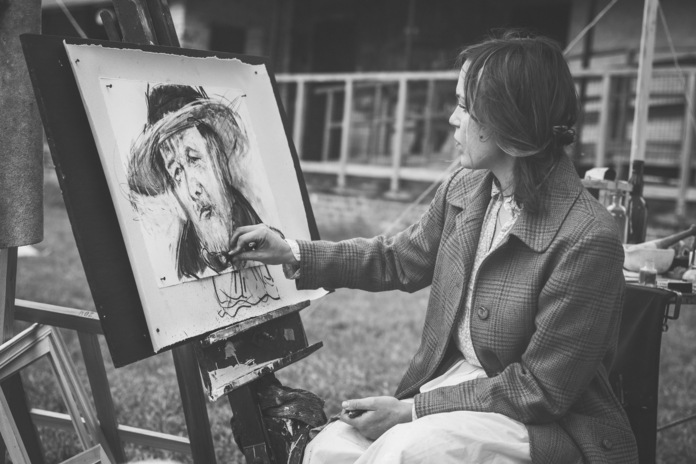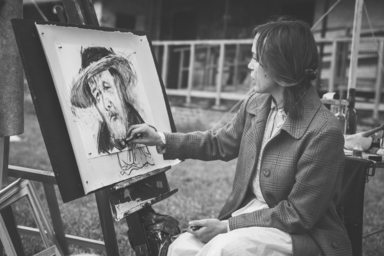The building with its courtyard and red columns is inhabited and walked by thousands of people. The number 1578 from Paulista Avenue is known internationally, and yet so familiar, like our own home. And, for us, it’s also the home of art.
The Assis Chateatbriand Museum of Art of São Paulo, or simply MASP, was founded in 1947 by businessman Assis Chateubriand, owner of one of the biggest empire of communication in Brazil. The museum was the first modernist of the country, praising for this new movement in art.
However, before the reopening in 1968, the museum wasn’t placed at its iconic address. Before all that, the 7th of April Street was the house of MASP, becoming since the beginning a meeting of artists, celebrating the foreigner and national art, besides its history. The first exhibition showed works as the “Buste d’homme (L’athlète)” by Picasso and “Portrait of a Young Man with a Golden Chain” by Rembrandt.
Buste d’homme (L’athlète), Picasso. Source: MASP
“Portrait of a Young Man with a Golden Chain”, Rembrandt. Source: Wikimedia Commons
Its influence to promulgate Brazilian art counted with investments on the old Institute of Contemporary Art – known as school of MASP –, and in international tours presenting the collection for museums, such as the Metropolitan Museum of Art in New York.
With a vast range of work still increasing, MASP received a new headquarter designed by the architect Lina Bo Bardi. Therefore, the address as we know nowadays began to create its shape. The building took ten years to be ready, inaugurating only in 1968, few months after Chateaubriand death. His journalistic empire was losing its space, which also affected the resources of the museum. So, in 1969, the collection became a historical heritage.
Source: Fap Comunicação Especial WordPress
Currently, MASP has 10,000 of works, including painting, sculptures, photos, archeology pieces and vintage clothing. The most important collection of art of Latin America lies in the museum, with objects of European school of art, besides a gathering of African and Asian art. The place also shelters the MASP Library and Documentation Center, which has thousand of books about art, becoming the biggest heap of specialized works in the country.
The legacy of MASP remains in the wide architecture, both outside and inside, giving the public ability to choose his path through the exposition. Bardi changed how we see art and Chateaubriand what we see. Until today, MASP gives opportunity to renew the vision of art as we know, proposing various discussion about the world.



